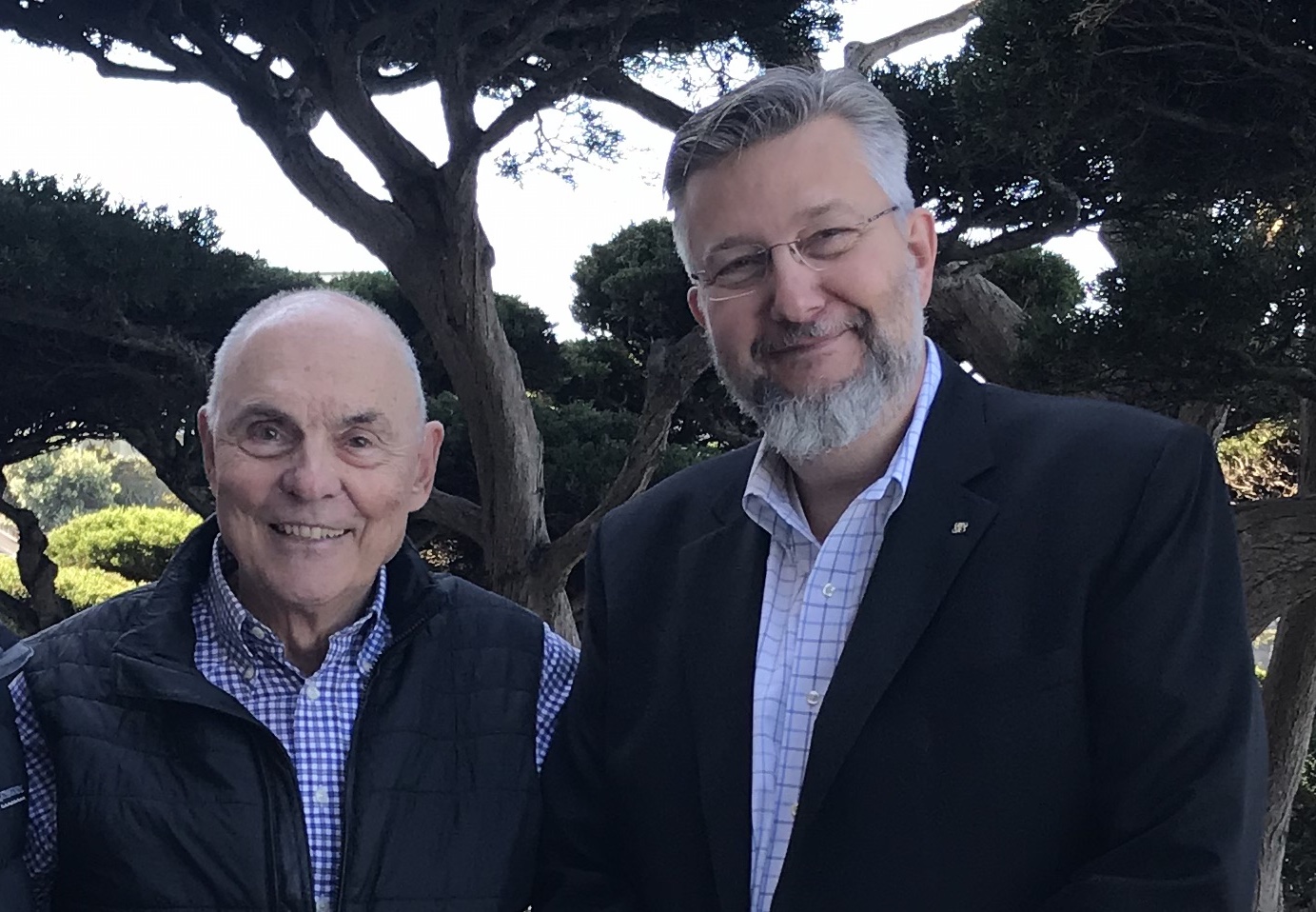Want to sell cemetery plots? You’ll need a license in Pennsylvania, though that rule may be, well, dying. On June 14, 2018, Gov. Tom Wolf called on the General Assembly to repeal 13 job licenses, part of a larger proposal to remove employment barriers.
The proposal was based on research conducted by Saint Francis University’s Knee Center for the Study of Occupational Regulation. In October 2017, Gov. Wolf signed an executive order directing the Pennsylvania Bureau of Professional and Occupational Affairs to review the state’s licensing requirements and compare them to neighboring states. The Knee Center was the logical choice to compile the data.
“We are the only university center exclusively focusing on this topic nationally,” says Ed Timmons, the center’s director and associate professor of economics. “We dug through all of Pennsylvania’s laws on occupational licensing and compiled the training requirements, the fees, and the renewal fees.” Timmons and his team then gathered the same data on northeastern states and states that border Pennsylvania. The results appeared in an executive summary published on June 11, 2018. Three days later, the governor proposed the following:
Eliminating 13 Pennsylvania Job Licenses
The proposal asks the General Assembly to eliminate licenses for the following jobs:
- Auctioneers
- Barbers
- Cemetery brokers/salespersons
- Campground membership salespersons
- Natural hair braiders
- Orthotic fitters/orthotists/pedorthists/prosthetists
- Practitioners of oriental medicine
- Rental listing referral agents
- Vehicle factory representatives
In most cases, the licenses would be replaced by less restrictive requirements. People who sell campground memberships, for example, would only be required to register with Pennsylvania’s real estate commission, rather than meeting licensing requirements of the past like taking a 15-hour course at an accredited college.
“As economists, we understand the costs associated with occupational licensing: It makes consumers pay higher prices,” says Timmons. “It also potentially keeps people from entering a profession because the fees or the training is too expensive. If no other state has that regulation, I think it makes sense to carefully consider whether that regulation is necessary.”
Assisting Military Spouses
When military families move to Pennsylvania, spouses frequently struggle to transfer their licenses. Military spouses “are disproportionately affected by licensure requirements due to their need to move frequently,” the executive summary states. “Research shows that military spouses are ten times more likely to move across state lines in a given year than their civilian counterparts.” Fifty percent of military spouses have careers that require state licenses or credentialing, according to the Department of Defense.
To ease that problem, the governor wants to streamline license procedures for military spouses, allow licensing boards to seek reciprocity agreements with other states, and grant licensure through endorsement.
“Occupational licensing affects different individuals in different ways,” says Timmons. “Military families tend to be much more mobile than other families, and so spouses often find that their licenses may not transfer to another state. And they’ll incur different barriers like fees, or taking an exam again, to work again in a profession that they’re properly trained to do.”
Removing Felony-Based Occupational Licensing Bans
Thirteen of Pennsylvania’s 29 professional boards—from the State Board of Nursing to the State Board of Crane Operators—impose a 10-year licensure ban on anyone convicted of a drug-related felony. Gov. Wolf wants the General Assembly to repeal those bans, Doing so, he believes, will encourage people to seek work while reducing crime and recidivism. One board has already taken that step: In July 2018, the State Board of Veterinary Medicine waived its 10-year automatic ban for vet tech applicants.
Banning applicants who have paid their debt to society is counterproductive, Timmons believes. He uses the example of prison programs that teach barber skills. “Our tax dollars are paying for these programs, and yet when individuals acquire these skills, they’re automatically barred from becoming barbers because they have a criminal background,” he says. “If we want our criminal justice system to work as it’s supposed to, we need to carefully reconsider how occupational licensing is keeping these individuals from reentering society.”
In addition to these three key reforms, the governor also wants to eliminate unnecessary education and training requirements, and speed up the licensing application process so it takes no longer than ten days. The House and Senate were not in session during the summer, but reforming occupational licensing appears to have bipartisan support. A state senator in Philadelphia—who like Wolf is a Democrat—has already proposed a bill to remove the education requirements for hair braiders to obtain a license. So far, no professional association has objected to Gov. Wolf’s proposal, but the 13 occupations “might be considered low-hanging fruit because there’s not a strong professional association that’s going to lobby to defend them,” says Timmons.
Over the next three years, the state will continue to review occupational licensing. Pennsylvania was one of nine states that received U.S. Department of Labor funding to study occupational licensing reform, so the Knee Center will conduct additional research, including a more comprehensive analysis of Pennsylvania licenses (the executive order focused on occupations licensed by the Pennsylvania Department of State, which covers most but not all of the state’s licenses). Timmons also wants to compare requirements for every state in the country and survey military veterans “to get a more qualitative understanding of how occupational licensing impacts veterans and their families.” These measures, along with the governor’s proposal, could elevate Pennsylvania to the forefront of occupational licensing reform, he believes.
“I think Pennsylvania is taking an important step by considering removing licensing requirements and committing to continue to review occupational licensing,” says Timmons. “We’re going to continue to work to identify ways that common-sense occupational licensing reform can move forward.”











